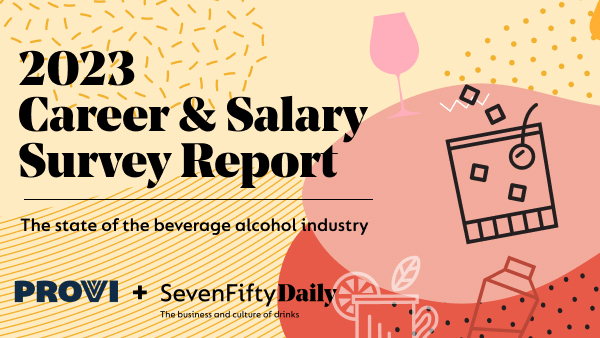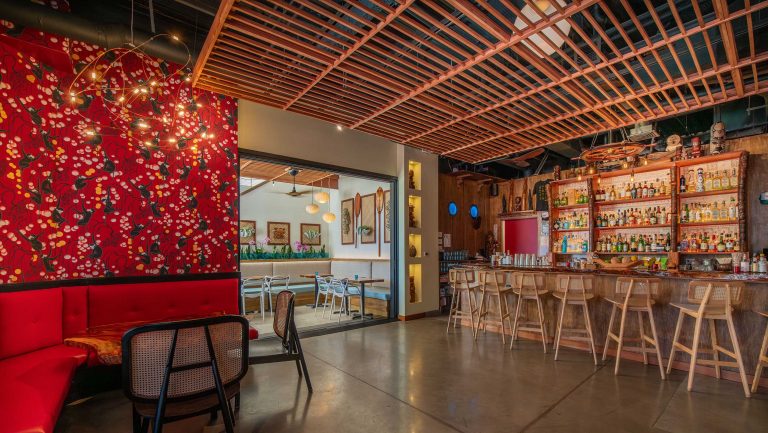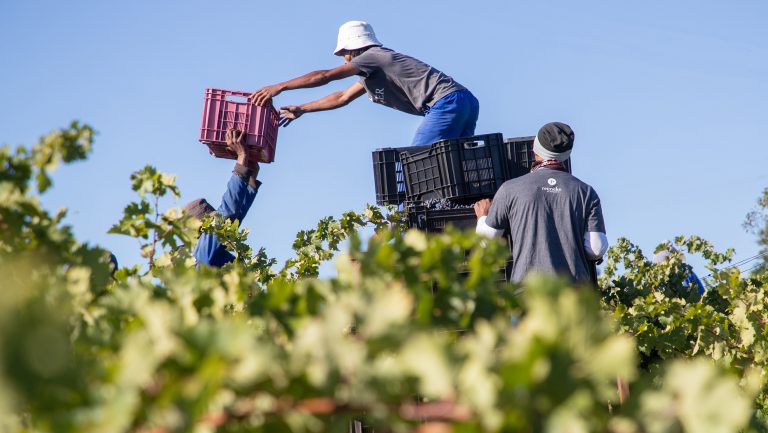To say that the beverage alcohol landscape has changed significantly since 2019 would be a massive understatement. The global pandemic halted on-premise sales as restaurants and bars shut down across the country, while also sparking a boom in retail and direct-to-consumer sales.
The events of the last four years—including supply chain issues, energized movements toward racial and social justice, and the rise of a generation driven by purpose rather than profit—have not only impacted consumer behavior; they have had a profound and lasting effect on those working in the drinks industry. These shifts are reflected in the results of Provi and SevenFifty Daily’s 2023 Beverage Industry Career & Salary Survey.
As a follow-up to the previous study, conducted in 2019, SevenFifty Daily and Provi surveyed more than 1,800 beverage alcohol professionals to learn about their compensation levels and seek their opinions on a variety of topics, from career growth opportunities to issues set to impact the industry. This year’s results revealed dramatic changes in workplace attitudes and priorities. Here are four key takeaways from the 2023 Beverage Industry Career & Salary Survey Report, which span tier shakeups to shifting trends.

Don’t miss the latest drinks industry news and insights. Sign up for our award-winning newsletters and get insider intel, resources, and trends delivered to your inbox every week.
Drinks Pros Are Switching Tiers
The last few years have brought a shakeup in industry tiers, with many employees switching sectors. Thirty-five percent of survey respondents reported changing jobs since 2020, with 14 percent changing industry tiers. While some workers made the change from retailer or producer to wholesaler, tier-jumpers most commonly left on-premise jobs to join the importer/distributor or off-premise sectors.
This did not come as a surprise to Neal Bodenheimer, the owner of Cure and Cane & Table in New Orleans, and a Tales of the Cocktail Foundation board member.
“Even in the worst of times, hospitality has always been a place where there were jobs to be had,” he says. “The pandemic was the first time in modern history that when times got tough, there were no jobs in restaurants for a long time.”
People who spent years building careers in the on-premise world suddenly found themselves without a means to work, he says, which made other sectors of the drinks industry seem more attractive.
“I’m also a bartender, so let’s use that as an example,” says Bodenheimer. “When I work, I make money. When I don’t, I don’t. Who wants to be tied to a career like that when times are bad? These are big, honking issues that have to be thought through and that we’ve got to start making progress on.”
Workers Are Less Optimistic About Career Growth Opportunities
It wasn’t only on-premise employees that expressed decreased confidence in their career prospects. Survey results also revealed declines in the importer/distributor and producer tiers. When asked how they would rate their opportunities for professional growth within their sector, only 41 percent of overall respondents described them as “very good to excellent,” compared to 48 percent in the 2019 survey.
Bodenheimer sees this as another lingering impact of the pandemic, which put many people’s career advancement plans on hold.
“There was a lot of growth and excitement before, and a lot of opportunity,” he says. “People felt like they were really building careers, but then they went into survival mode. You’re not thinking about the future; you’re thinking about getting through the day.”
Now that restrictions have been lifted, Bodenheimer adds, drinks professionals—including owners and operators—are working to regain their pre-pandemic motivation and sense of purpose.
“We’re all working on trying to do the things that get our teams and ourselves engaged and turned back on,” he says. “What’s been helping me the most is plugging back into the community.”
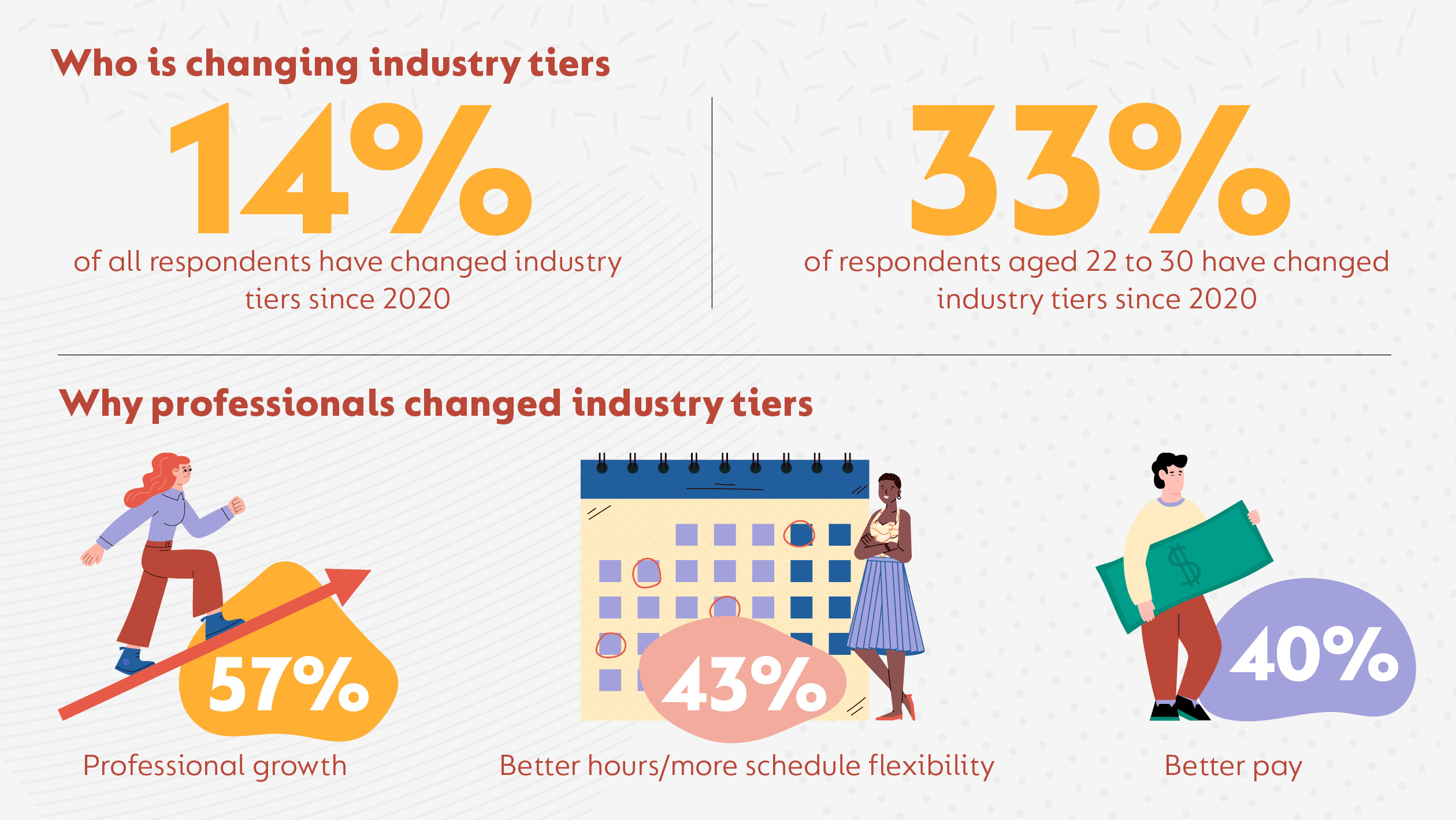
While the survey shows that perceived career growth prospects declined among on-premise and wholesale employees between 2019 and 2023, optimism grew among those in the retail sector, from 34 percent to 37 percent.
Tom Wark, the executive director at the National Association of Wine Retailers in Sacramento, California, attributes the gain to the off-premise realm’s educational opportunities.
“There’s a lot of mentoring that happens on the retail side of the business,” Wark notes. “Becoming a somm has been publicized a lot over the past decade, yet the retail side has sort of been ignored. But depending on the employer, retail offers an opportunity to delve into every side of the business. You’ve got to deal with customers, you’ve got to deal with distributors, you deal with producers who are always coming by. It also offers tremendous access to advancing your palate.”
To help employees in various aspects of the industry advance their careers, organizations such as the Tales of the Cocktail Foundation offer education and training, seminars with industry leaders, and direct mentorship.
Bart Watson, the chief economist at the Brewers Association in Boulder, Colorado, confirms that he is seeing more industry programs designed to foster career growth and development. “A lot of them are focused specifically around mentorship for underrepresented groups in the industry,” he says, “as opposed to broader-based efforts.”
Each spring and fall, he notes, the Brewers Association runs a mentorship program with dedicated tracks for people just entering the industry, professionals looking to develop their careers or change paths, and those in underrepresented groups looking to open breweries. “It’s been great to see people moving through the program and starting to take on new roles or open breweries,” says Watson.
Paid Time Off and Healthcare Are Top Priorities
When asked which workplace policies are important to them, 73 percent of those surveyed pointed to paid time off (PTO), including sick leave and vacation time, while 68 percent cited healthcare benefits as important.
The numbers skewed a bit differently for executives: Only 64 percent prioritized PTO and 62 percent cited healthcare as a top concern—perhaps because most workers in these positions already receive such benefits. Younger workers placed the greatest importance on all of the benefits listed, with 81 percent of respondents aged 22 to 40 prioritizing PTO.
“I think a lot of people are focused on their working conditions more holistically, other than just pay,” says Watson. “People want to have a job where they have the opportunity to work, but then [they want to] reset. Burnout is something that’s just in the ether right now. People are talking about it a lot.”
Wark observes that this issue is especially important to younger generations. “They have been convinced that they deserve not just a package of benefits and a decent salary, but they need to have self-care time,” he says. “They’re looking for a great deal more from their employers, including retailers, and employers have no choice but to provide it.”
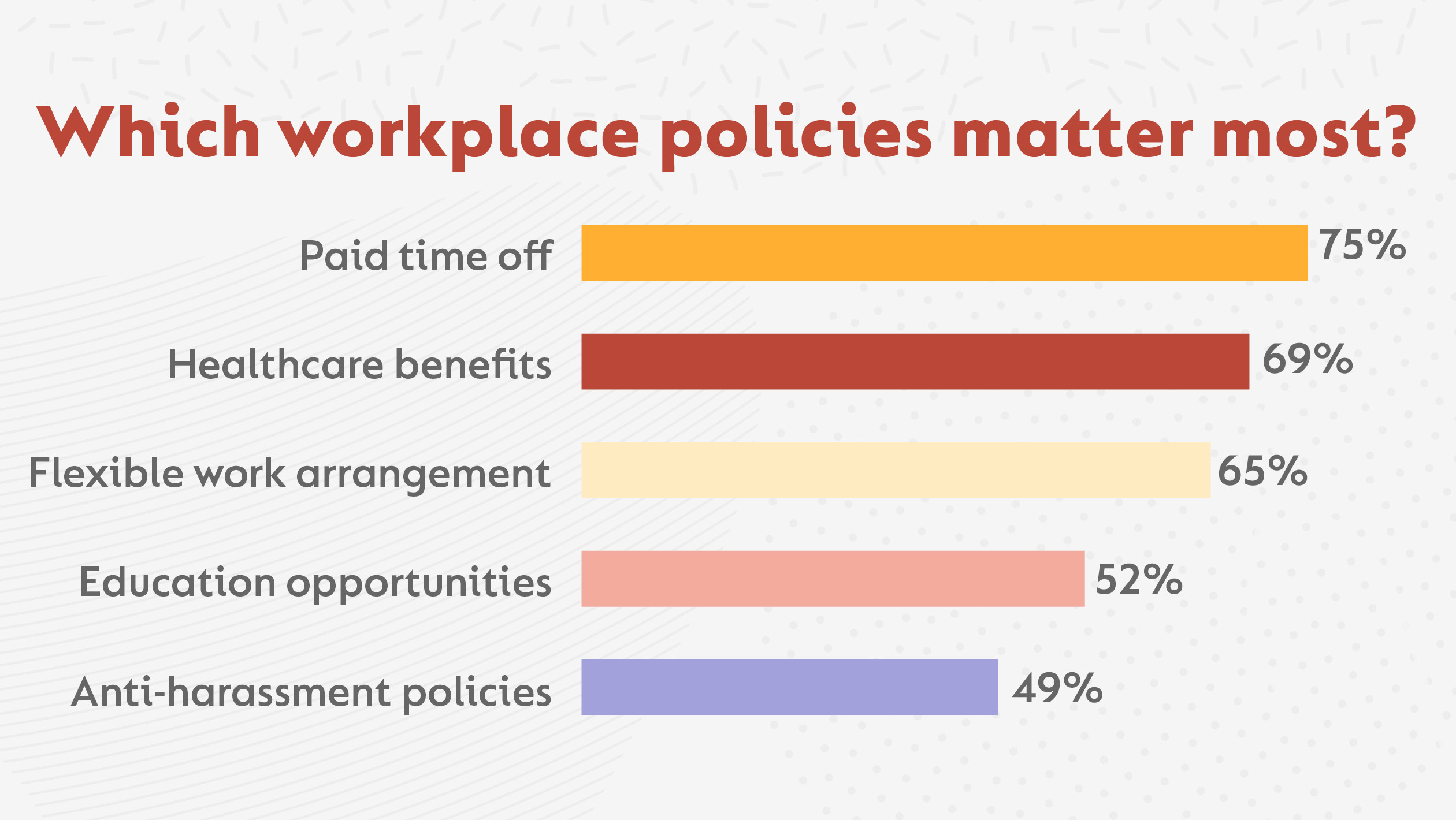
While offering benefits can be cost prohibitive for many small business owners, Bodenheimer says he sees more bar and restaurant owners—himself included—making an effort. Though he does not provide healthcare coverage for all employees at his New Orleans establishments, they cover 100 percent of premiums for managers and 50 percent for bar leads.
“To us, it’s about making sure that people are getting real value when we offer a benefit, but we have to do this smartly,” he says. “We can’t make decisions that would cause us to go out of business.”
Bodenheimer is also looking into OS Benefits, an online benefits marketplace for independent hospitality businesses. Employers pay a monthly fee for each worker, which allows team members to access affordably priced preventive care, crisis services, and wellness resources.
For those working on the on-premise side, he says, benefits may be the key to making positions such as bartending into truly sustainable careers. “That means you have a career where you can have children and still do it, and you can get older and still do it,” says Bodenheimer. “You have the kinds of benefits that someone who works in an office has.”
Sustainable Packaging and Climate Change Are Gaining Importance
When asked which issues and areas of the industry will gain importance during the next year, a large majority of respondents—76 percent—cited sustainable packaging, while 74 percent called out climate change.
“We do see continued and increasing interest in earth-friendly packaging and adoption of sustainable business practices, and I expect that trend to continue,” says Allison Jordan, the executive director of the California Sustainable Winegrowing Alliance and the vice president of environmental affairs at Wine Institute. “Many wineries are lightweighting bottles, which can help them reduce their greenhouse gas footprint, reduce shipping costs, and make bottles easier for employees to carry.”
In the 2022 Certified California Sustainable Winegrowing Annual Report, she notes, 98 percent of wineries said they included environmental considerations in purchasing decisions and undertook research into alternative materials and products.
Sustainable practices can also make wineries more attractive to potential employees, she notes. “I have seen data and have certainly heard anecdotally that sustainability does help with employee attraction and retention,” says Jordan, “especially among younger generations.”
Michael Kaiser, the executive vice president and director of government affairs at WineAmerica in Washington, D.C., points to Tablas Creek Vineyard in Paso Robles, California, with its high-quality bag-in-box wine, as one of many wineries adopting sustainable packaging.
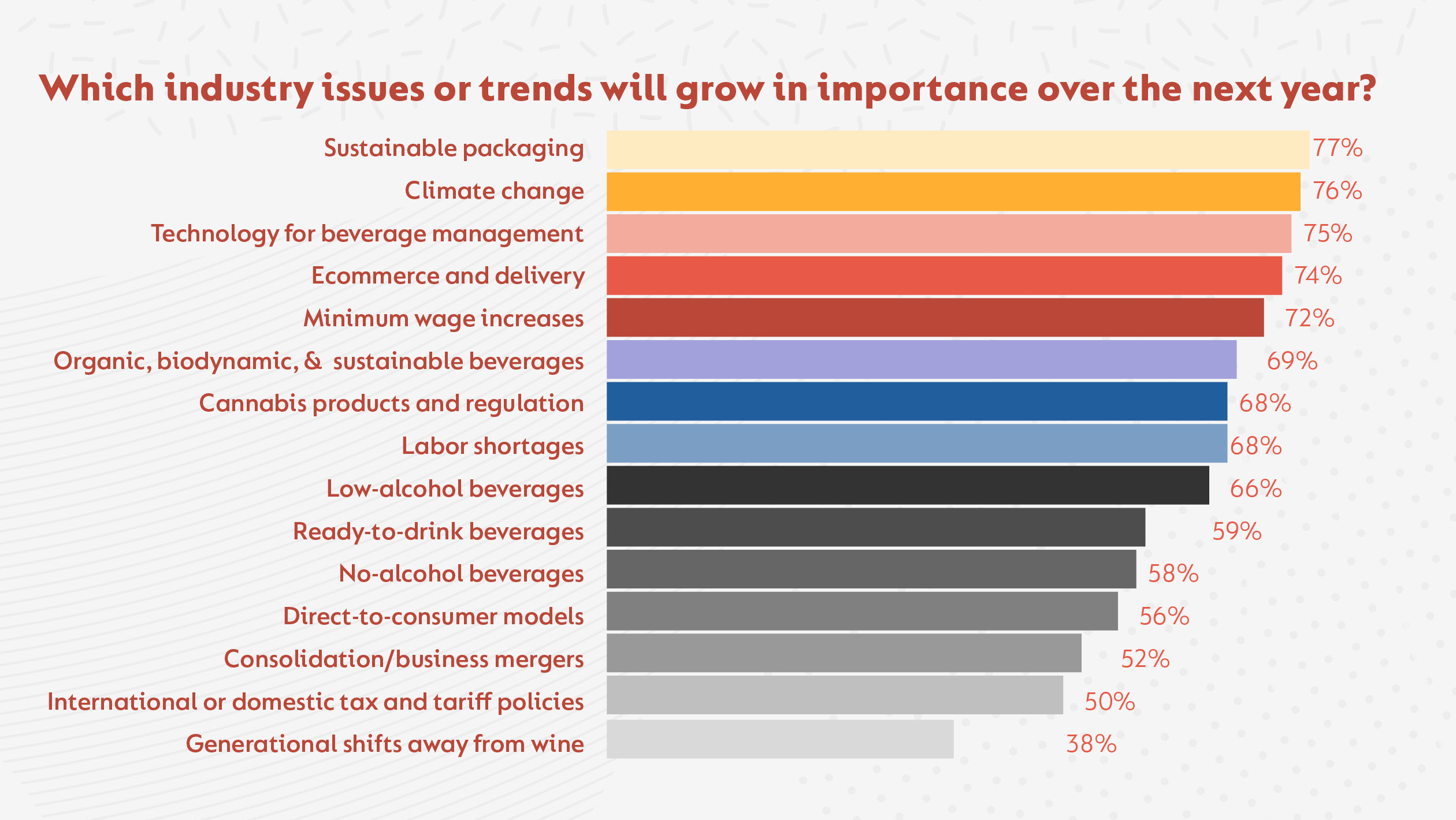
“We are also seeing wineries go with refillable growlers in their tasting rooms,” he says. “Other trends are bottles no longer having capsules, and wineries shunning those heavy bottles. I think we will continue to see more and more companies start to look into being more sustainable.”
Along with sustainably packaged products, low- and no-alcohol beverages are expected to gain importance in the coming year. In the 2023 survey, 65 percent said low-alcohol drinks “will grow in importance” compared to just 56 percent in 2019. Fifty-seven percent said the same for non-alcoholic beverages in 2023 versus only 44 percent in 2019.
“It’s a growing segment, though it’s still not huge. We’re still talking less than one percent of the overall beer market,” says Watson. Even so, he adds, 80 percent of those who buy non-alcoholic beer also consume alcoholic brews. “These are people who are looking to break up a session or have occasions that have now become non-alcoholic ones,” he says. “We’re definitely seeing brewers start to think about that and they’re responding to it with different products.”
Read the full 2023 Career & Salary Survey Report now.

Dispatch
Sign up for our award-winning newsletter
Don’t miss the latest drinks industry news and insights—delivered to your inbox every week.
Tina Caputo is a writer based in Northern California who covers wine, beer, food, and travel. She was formerly the editor in chief of Vineyard & Winery Management magazine, and her work has appeared in Wine Enthusiast, Visit California, Sonoma magazine, the San Francisco Chronicle, and many other publications. She also produces the podcast Winemakers Drinking Beer.



